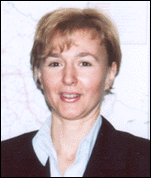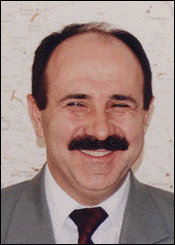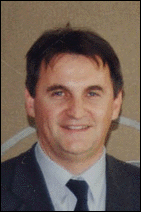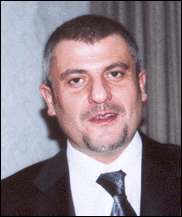 FOREIGN INVESTMENTS FOREIGN INVESTMENTS |
 Worth to take a risk Worth to take a risk |
Serbia is expecting a great inflow of capital in 2002 (greater than last year's) from mostly three sources - around USD 300 million from privatization, which has made a good start, roughly USD 400 million from donations in the form of soft loans and favorable bank loans, and from direct foreign investments (FDI). It is estimated that direct foreign investments last year weighed around USD 160 million. In order to ensure to double this figure in the first six months and to improve the investment climate generally speaking, the Serbian Government has prepared a Study on Eliminating Obstacles to Foreign Investment.
The shortage of domestic capital and the very fact that Serbia needs around USD 2 billion worth of foreign capital annually in order to launch serious economic development, forced the Government to finalize 30 economic laws. The law of foreign investments and the one on concessions are just two of them, which were aimed to pass parliament before summer.

There are three addresses where foreign investors may go in order to establish first contact: The Privatization Agency, the Chamber of Commerce and the Serbian Investment and Exports Promoting Agency (SIEPA). The Privatization Agency is responsible for selling the existing companies and assets. The primary role of the Chamber of Commerce is to establish business-to-business contacts: They are working with the existing companies that are already privatized, or those that are looking for joint-venture partners. "We are the 'address' where most foreigners are coming. Most of the Prime Ministers who came here to discuss the economy are going through the Chamber of Commerce. For instance, the Czech Prime Minister came here straight from the airport", says Mr. Slobodan Korac, the President of Yugoslav Chamber of Commerce. Both Yugoslav and Serbian Chamber have excellent databases of information on domestic companies and their business potentials.
In February 2001 the Serbian government established a special body, the SIEPA, to assist and encourage investors who are looking at other types of investments than privatization. SIEPA's task is to attract green-field and brown-field investors in Serbia. "We have published a list of green-field locations that are available for settling down production facilities - factories, shopping centers or whatever you want to do, on an Internet site. If an investor, after seeing the content of the site, wants additional information we provide it to him. Concerning brown-field investors, we are helping them to establish contacts with current owners of real estate properties", says Mr. Dusan Zivkovic Executive Director of SIEPA.
Institutional investors such as EBRD, EIB and European Agency for Reconstruction (EAR) already showed their strong interest in investing in Serbia. "With the attraction of foreign capital, including the capital of the EBRD and other foreign investors, I believe that we will be able to create a good combination of domestic skills and know-how on one hand, and foreign capital on the other, which will make possible the recovery of the country", says Mr. Henry Russell, director of Belgrade's EBRD office.

The three institutions promised to secure a very favorable loan worth 170 million euros for reconstruction of railways and motorways on pan European corridor ten, which connects Europe with the Middle East. "We have big possibilities for the transit transport, but we have to invest a lot, first in roads and second in road services, like gas stations and motels. I think that there are a lot of possibilities for foreign investments here, to build motels or to get concessions on roads, for instance", says Ms. Marija Raseta Vukosavljevic Serbian Minister of Transport and Telecommunications.

Mr. Dragoslav Sumarac, Serbian Minister of Urbanism and Construction shares the same view. "Our plan for this year would be to enable foreign companies, especially American ones, to participate in Yugoslav reconstructions and invest in it. As far as I know, companies like Van Smith from The Netherlands or Vanderbau are all competing on those international tenders", says Sumarac.
But the first companies which came to Serbia were investments banks, eager to see for themselves whether reforms in Serbia were promising ones.
| The investment branch of the Austria Creditanstalt bank (CAIB), which organized the first investment and banker summit in May 2001, gathered about 150 leading international companies, banks and consulting houses among which IBM or ICN Pharmaceuticals were present. The representative of Creditanstalt Gavin Ryan told the local press that he expected his bank to become one of the leading investment banks in Yugoslavia and wanted to contribute developing the securities' market in Serbia, which is only at infancy-level. The bank also expects that in the coming year it will be able to set up an investment fund as it has previously done in Poland and Croatia.

Mr. Toplica Spasojevic Chairman of ITM Group, one of the leading Serbian export import companies, doesn't dwell on which are the most promising sectors of Serbian economy. "Definitely energy. We are big consumers and before we were even bigger exporters of electricity. The second one would probably be agriculture because the soil is excellent, the climate is good and we have a long experience in that field. Even metal production will be interesting", says Mr Spasojevic.
While some foreign investors were mainly focused on fact-finding missions, the German giant Siemens has been present in Serbia for more than a hundred years. The company branch in Serbia established a joint-venture with a company based in Zemun, Belgrade suburb, and has more than 80 partners, mostly the biggest infrastructure companies in the country: The Post, Telephone and Telegraph communications company (PTT), Serbian Government, Serbian Rail Company and the Clinic medical center of Serbia. "Our intention is to organize businesses on local basis with local people, but the question of investments is very sensitive still.

Investment needs stability and new legislation, but this is a process that has started already" says Mr. Obrad Spremic, General Manager of Siemens d.o.o. Siemens already invested more than 25 million DM in its joint venture company, and intend to invest more then 50 millions DEM this year. "Our grandparents could find this company here and our children will find Siemens here, too", says Mr. Spremic who believes that one of the most promising markets in Serbia is that of the electrical market services which holds 5 billion dollars.

One of Siemens' big local partners The Post, Telephone and Telegraph Communications Company (PTT), already started comprehensive structural changes. Along with improvements in its core business postal services, PTT plans to develop cable distribution system along with foreign partners, which is going to be used for a cable TV and high speed Internet. "It is going to be in essence, an optical network all around the country, says Mr. Srdjan Blagojevic, CEO of PTT Communication Serbia, who made a career in software business in Canada.

Mr. Toni La Rosa, Managing Director of Sun Microsystems for the Mediterranean area also believes that Serbia represents a high potential for the development of IT. He visited Belgrade three times already. First time he came was in March 2001 to get first hand information from its local partner, Saga Computer, on the current political and economical situation. Together with private international investment company Orah, Sun Microsystems had the idea to build a competence center as the core asset of a high Tech incubation center. "Sun Microsystems will be together with the partner community a major contributor in Serbia to enable the technology driven economy" The ICTT (Information Communication Technology Tower) is the vehicle to deliver know-how, technology and business solutions in Serbia and beyond", says Mr. La Rosa, referring to Sun's project in the country. |

